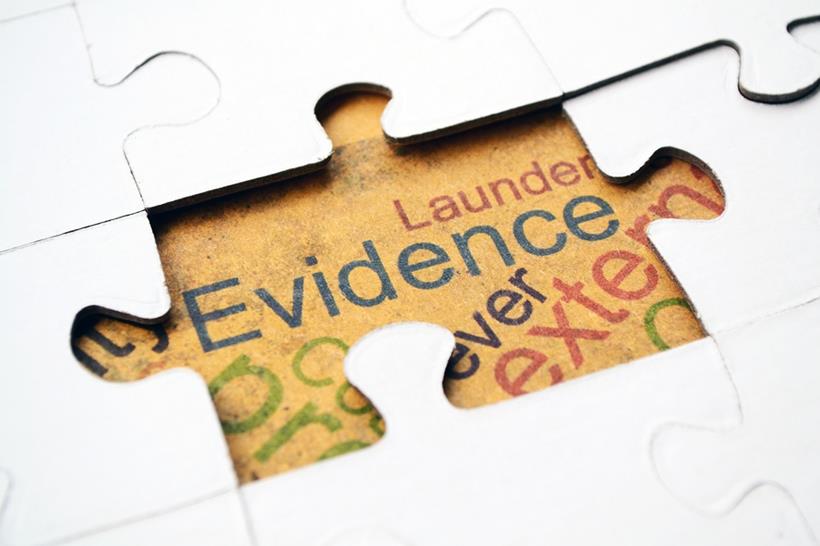
This article appeared in the May, 2014 issue of IQ – the Records and Information Management Professionals Australasia (RIM) Quarterly magazine. To download, click here: Not the 6 O’clock News
Aimee walked in the door after work. The house was dark and quiet. Good, she’d beaten Ben home. A few minutes of ‘me’ time before he gets in. She flicked on the TV in the bedroom to catch the news as she changed out of her office garb. Accident in the suburbs, building site explosion and fire, two dead.
A fleeting sadness crossed her mind for the dead and their families, as it did every time she saw something similar. And then she caught the words “Mason Holdings”. Ben’s company.
On the screen she could see the building and rubble. The reporter was talking about an infringement of safety conditions. Lucky more people hadn’t been killed.
Ben wouldn’t have been on site she told herself as she felt the panic rising. He’s the construction manager. He doesn’t actually do anything dangerous. Doesn’t actually get his hands dirty.
His mobile went to voice mail. The text message sat unanswered. She sat in the dark waiting, wondering what to do next. And then, “Hi. You’ve seen the news. Don’t know that I’ll get home tonight. I’ll call you when I can.”
Tears streamed down Aimee’s face and she sobbed uncontrollably. She cried for what might have been, and what was for the two people who didn’t make it home tonight.
*****
The next week was really just a blur. Ben spent long hours at work sifting through the trail of paperwork, trying to answer the puzzle of why and how the accident happened. WorkCover and the police demanded answers. He’d never so much as had a traffic infringement before, and now he was being treated like a criminal. There were isolation interviews, his computer was possessed and office turned over.
Aimee caught most of the story on the nightly news, or through the papers. Ben was simply too exhausted and confused by the end of the day to have a coherent conversation with.
With Mason being a large national company the journalists were keen to keep the story on the front pages. There were plenty of people who wanted to see the company held responsible, and naturally people deserved answers. The safety record of Mason was good, but it was easy to find plenty of people to provide evidence of near misses. Why so many? The public demanded an explanation, and the investors wanted reassurance their projects were secure.
Ben, when he finally talked, said it was a result of a contract variation. The process for safety inductions had been changed. Normally the contracted company was responsible for safety inductions on the services they provided. The supplier did not want to complete the inductions and requested Masons to complete the inductions or allow them to outsource the inductions. Ben knew that he had authorised a variation to the contract approving the outsourcing. But the supplier claimed in this case it was Mason’s responsibility. The investigation revealed that the the variation document was not passed on to the project manager, so no one authorised the company supposed to be conducting them for this supplier and Mason’s did not conduct them either. The new recruit didn’t really stand a chance that day; not understanding the unique conditions of this site and its’ risks. And the second person just happened to within the range of the blast that was caused.
Aimee saw Ben suffering every day as he struggled to live with his responsibility in the whole scenario.
*****
“Yvonne, how do we handle contract variations?” Yvonne was Aimee’s boss, and the Records and Information Manager in a Government Department.
“You’re thinking about Ben aren’t you? You know the records policy instructs people to save the contract documents into the EDRMS.”
“I know that, but we know people don’t put them all in. And even if the original contract is there, all the variations, emails and phone conversations won’t be.” Aimee’s face showed how concerned she was.
“Look Aimee I know it’s a worry for you with what Ben is going through. And it would be great if people did put everything in the EDRMS, but they just don’t listen to us. If we had more staff we could pursue people, but as it is we’re up to our necks just scanning the backlog of physical files.”
Yvonne was trying to be comforting. “Besides which, it’s not the same for us you know. None of our contracts are about life and death. We just don’t have the same risks.”
Aimee knew working for a Government Department was different to a construction company like Mason. Their Department focused on policy and administration. But her mind was still uncomfortable. She just wasn’t sure the situation and risk wasn’t exactly the same.
The word ‘risk’ played on her mind for the rest of the day. Ben’s role as the construction manager meant that he had to identify the risks to the company. She remembered a conversation about how he evaluated risk.
“I measure them,” he said, “Against the standard risk criteria. Every organisation is at risk of financial, physical, environmental and reputation loss when something goes wrong. Physical could be loss of assets, like buildings, or it could be injury or death.”
“Basically I work out all the things that could go wrong on a project, and then if that event did happen, what the impact on the company is. For instance if a contractor does a poor job then they have to pay for the rework, but it still has a financial impact on us because the building will be delayed in being sold. And plus then it gets out that we don’t get projects finished on time, so our reputation is lowered with investors.”
“Other times we might have to make a big payout to investors or contractors because we didn’t manage a risk.” He had smiled then. “Don’t worry babe. We’re pretty good at it after all these years.”
*****
That’s what bothered Aimee. The assumption that ‘we’re all right’. With their own contracts it just felt like turning a blind eye because they didn’t know the solution, when they knew important information was not being managed well. After all the cost to the Department whenever they hit the papers, both financially and reputation wise was colossal.
And then there were always staff who disappeared after an uncomfortable event. Sometimes it was the stress, and other times they were shown the door.
Lunch with Legal. Aimee decided that was the place to start. Yvonne couldn’t complain that she wasn’t attending to her own work, and she could get a better understanding. Brian and Margot happily agreed.
Aimee explained what had happened and how she was worried that they didn’t have their own contract records captured in the EDRMS. “Well,” said Brian, “I don’t care whether they are on the shared drive or the EDRMS, but all in one place would be nice. We can usually tell we are missing bits and pieces, but it takes us simply ages to piece everything together.”
“Problem is people really hate the EDRMS,” Margot said with a shrug that indicated she thought it was a waste of time.
“I know everyone likes to do their own thing, and it would take a big effort to make it all run smoothly. But surely the Directors are worried about the costs of poorly managed contracts?”
Margot and Brian exchanged sideways glances. “Look Aimee I know they could be more efficiently managed, but unless it’s a really serious issue we don’t get Directors involved. They are happy as long as we get the information to them. I guess they are used to that being a fairly slow process.”
This was getting a bit precarious, thought Aimee. She’d have to tread carefully. Obviously Legal were feeling vulnerable about their own responsibilities here. She pondered a moment. “The case last year, where the website company claimed they had fulfilled their contract, and we said they hadn’t. That ended up all over the papers for a few days didn’t it because the information on the site wasn’t secure? What was the problem there?”
Brian sighed. “Yes that was ugly. They were contracted to supply a secure site, but there were technical problems and there was a series of email and letters about it, and how it was going to be resolved. It took a while to be discovered, and there were many gaps in the information when we tried to find the trail of evidence. The whole project had taken ages which meant people had moved on. Finding their emails and all the other documents was painful.”
“Didn’t the Director end up on national news over that, trying to placate people?”
“Yes and she was pretty upset with us because we didn’t have the facts to give her. Just muddle and guesswork.” Margot was looking uncomfortable now. She added quietly, “That was when Fran left. She couldn’t hack it any more after that one.”
At the end of the day Legal were accountable for all the contract management but it was obvious that despite the pain it caused they didn’t see the EDRMS as the solution. As Aimee discussed more with Brian and Margot she could see that they took it for granted their Division’s role was to deal with this type of problem. There were no proactive suggestions from them on either how to gain more commitment from the Director or the staff.
They were also clearly unfamiliar with how to use the EDRMS beyond basic file registration and document storage. At least there was one positive of the system for them – the automated retention.
*****
Aimee ran a report to see just how many contracts were in the EDRMS. All she had to go on was the title and the results looked poor to her. There were a variety of odd titles in the Contract and Agreement classification. From the title it was impossible to tell if many were actually contracts, and then a sprinkling of other documents throughout the classification system had ‘contract’ in their title.
Definitely a clean-up job for Records, and teaching people to use the right classification was needed. That was just a patch though she knew from experience. She would nag and educate, and some people would comply, but without grinding vigilance on her part any change in how contracts were stored would evaporate over time.
“What makes people consistently and correctly repeat the same practice?” she mused.
“I know! Immediate reward.” Aimee smiled at a fleeting vision of herself running around handing out chocolates every time someone registered a contract. That wasn’t going to be quite the solution, but she realised that the reward of being able to manage contract issues was too far down the track for the people creating the contract. Many of them would have left by the time a problem arose, and it was likely they viewed that as the reason the Legal team existed.
No, it would need to be something that provided a reward in a short time.
“Can you take me through setting up a contract?” Aimee asked Yvonne.
“Well, there is a variety of types. I’ll do the two most common for you.”
Aimee listened carefully. There was a clear process for each contract type of who had to approve what and how Finance raised a ledger item for a contract. Naturally Yvonne saved her contract to the EDRMS, but the implementation of a contract worked equally as well if the contract was saved on a C Drive. All the signatures were on the physical copy.
What was consistent was the registration of every contract in the Contracts Register. That’s where the contract number was generated. As well as the signature the signatories had to mark progress of the contract approval in the Register. Without that Contract Number everything came to a halt.
Aimee knew she’d found her reward. The Contract Number empowered the contract creator. Generating that number was the one absolute in each contract process.
Yvonne listened patiently, nodding her head. “Yes, you’re right. We could make a record type in the EDRMS and imitate the Contracts Register.” More thought, more nodding. “That would force at least every initial contract to be registered in the EDRMS. But …”
Yvonne presented the insurmountable obstacles; getting the parties to accept the EDRMS as the Contracts Register, training people on the new process, capturing all the additional documents, getting the Directors support. Aimee focused on her memory of Ben’s recent accident.
Yes, there were obstacles. Yes, it would be difficult. There was a clear choice, however. To succeed despite these obstacles or to fail because of them. And she had within her grasp the first step in reducing risks and not appearing on the 6 o’clock news. She knew she was the one with the opportunity to make a difference.






